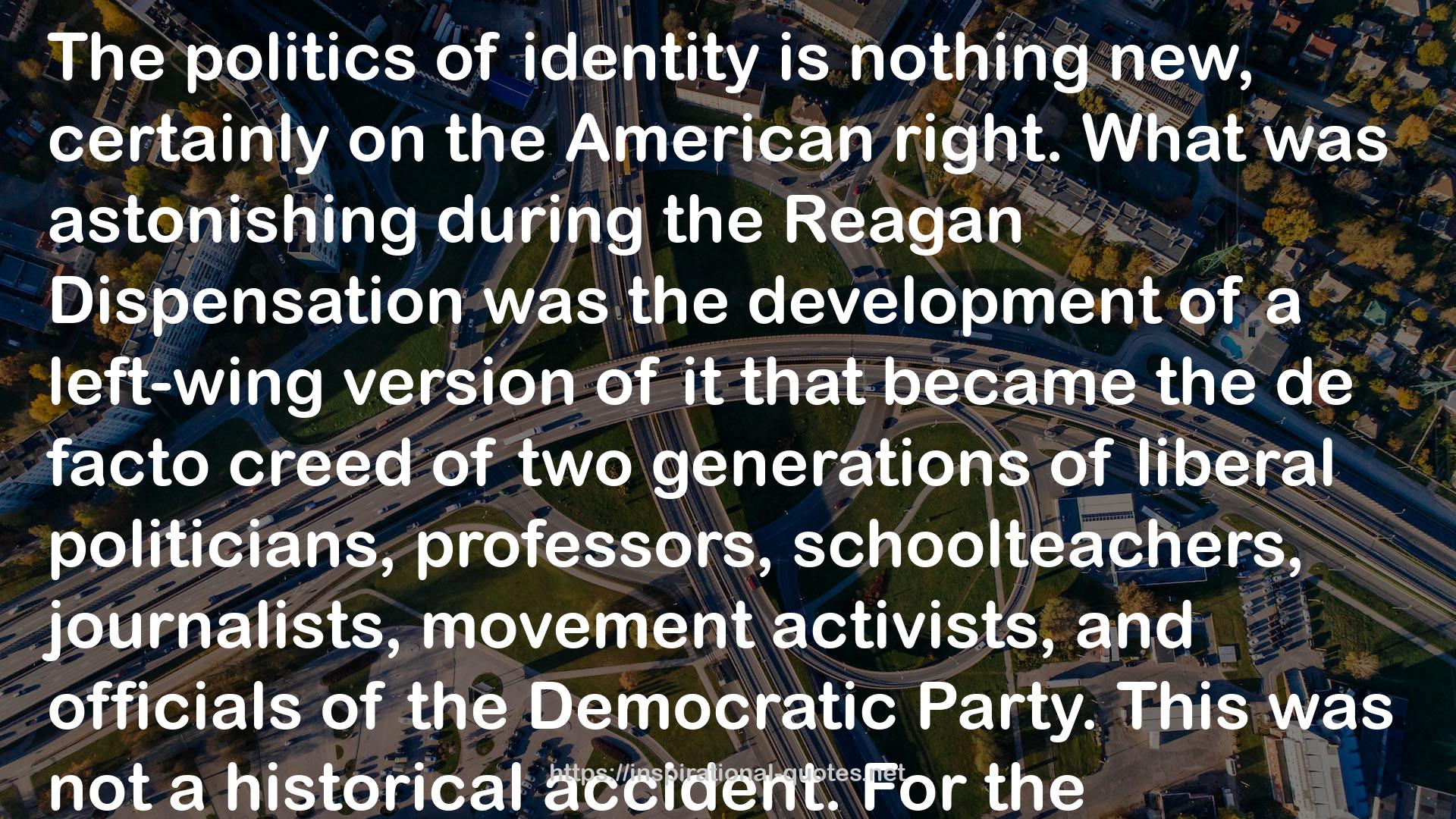" The politics of identity is nothing new, certainly on the American right. What was astonishing during the Reagan Dispensation was the development of a left-wing version of it that became the de facto creed of two generations of liberal politicians, professors, schoolteachers, journalists, movement activists, and officials of the Democratic Party. This was not a historical accident. For the fascination, and then obsession, with identity did not challenge the fundamental principle of Reaganism. It reinforced that principle: individualism. Identity politics on the left was at first about large classes of people -- African-Americans, women -- seeking to redress major historical wrongs by mobilizing and then working through our political institutions to secure their rights. But by the 1980s it had given way to a pseudo-politics of self-regard and increasingly narrow and exclusionary self-definition that is now cultivated in our colleges and universities. The main result has been to turn young people back onto themselves, rather than turning them toward the wider world. It has left them unprepared to think about the common good and what must be done practically to secure it -- especially the hard and unglamorous task of persuading people very different from themselves to join a common effort. Every advance of liberal identity consciousness has marked a retreat of liberal political consciousness. Without which no vision of America's future can be imagined. "
― Mark Lilla , The Once and Future Liberal: After Identity Politics
